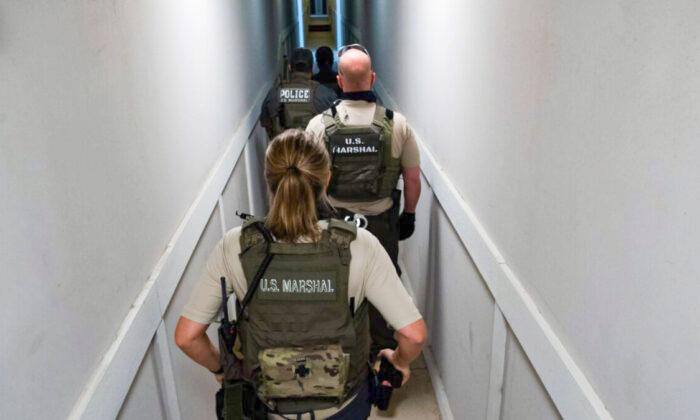The Australian federal government last week passed a sweeping surveillance bill that would grant top law enforcement agencies the authority to take over social media accounts and hack the devices of individuals suspected of participating in serious online crime.
Specifically, the legislation grants the Australian Federal Police (AFP) and the Australian Criminal Intelligence Commission (ACIC) the power to modify or delete the data of suspected offenders, collect intelligence on criminal networks, and take control of a suspected offenders’ online account.
Those who refuse to comply can face up to 10 years in prison.
In defending the legislation, Andrews cited an operation earlier this year that resulted in 290 arrests, saying that this “confirmed the persistent and ever evolving threat of transnational, serious and organised crime—and the reliance of these networks on the dark web and anonymising technology to conceal their offending.”
“Under our changes the AFP will have more tools to pursue organised crime gangs to keep drugs off our street and out of our community, and those who commit the most heinous crimes against children,” she added.
Passage of the bill however has been met with scrutiny, with some human rights activists saying it’s a “draconian” and “extreme” infringement on an individual’s right to privacy.
Earlier this year, Bill Rowlings, CEO of rights group Civil Liberties Australia, called for the measure to be scrapped.
Upon passage of the bill, some legal bodies have also argued that the federal government ignored recommendations from the Parliamentary Joint Committee on Intelligence and Security (PJCIS) on the implementation of critical safeguards.
Senior lawyer at the Human Rights Law Centre, Kieran Pender, told the news outlet that given the “unprecedented” and “extraordinarily intrusive” nature of these powers, they should have been narrowed to what is strictly necessary and subject to robust safeguards.
“It is alarming that, instead of accepting the Committee’s recommendations and allowing time for scrutiny of subsequent amendments, the Morrison Government rushed these laws through Parliament in less than 24 hours,” he added.
The bill is now awaiting Royal Assent, the final step before it becomes law.






Friends Read Free